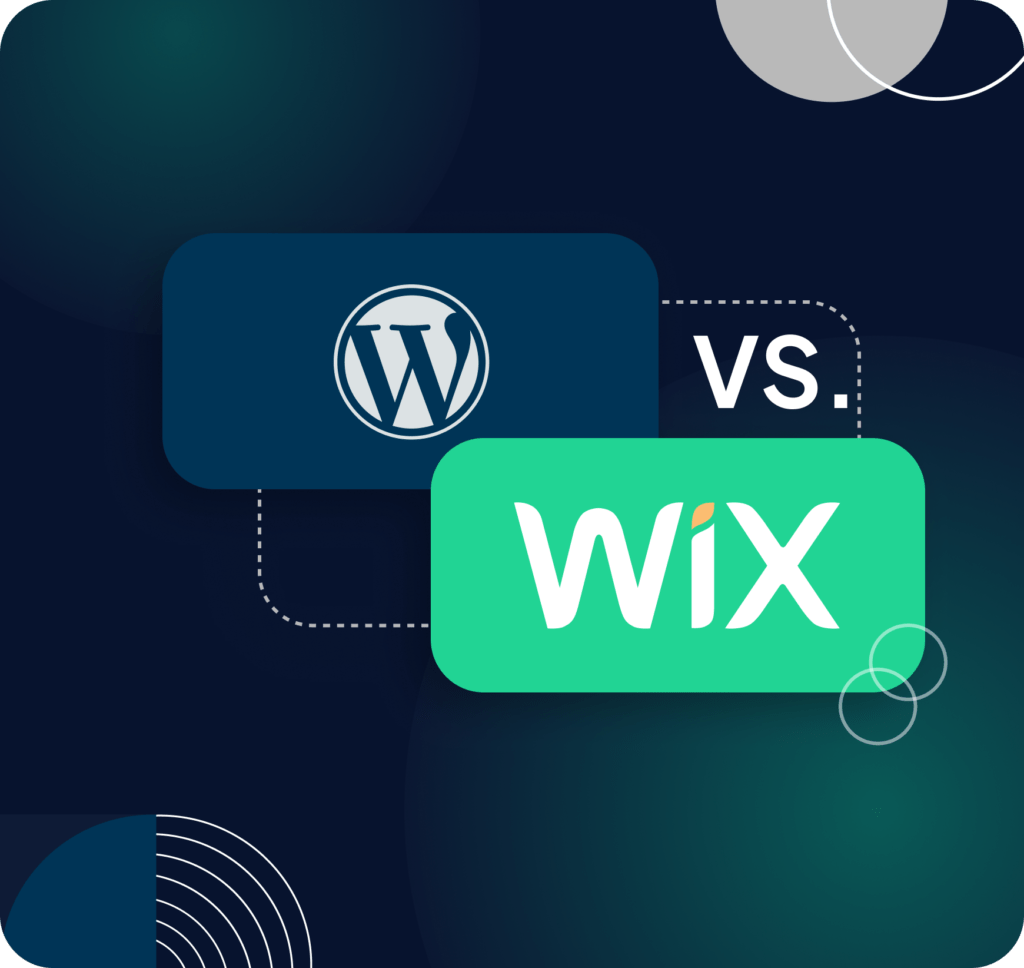WooCommerce is renowned for its straightforward and sleek shopping interface, providing a smooth customer experience. It is now the largest e-commerce platform, with a market share of 28.24% of all e-commerce websites, topped up with over 3.8 million websites worldwide.
WooCommerce is a powerful e-commerce plugin for WordPress designed to transform any WordPress site into a comprehensive online store. As of 2023, it’s a leading platform in the digital commerce space, boasting extensive market adoption due to its flexibility and user-friendly interface. It caters to vast industries and business sizes, making it exceptionally versatile. WooCommerce offers a customizable framework that supports many extensions and themes, enabling businesses to extend functionality and tailor their sites to specific needs. Its deep integration capabilities with various payment gateways and shipping methods make it a preferred choice for merchants looking to optimize their online sales Processes.
Customization and Flexibility
Custom WooCommerce development empowers an online store with matchless customization and flexibility, which are essential for a business to thrive in providing a unique shopping experience based on its brand and customer uniqueness. This level of customizability proves especially useful in very competitive e-commerce environments when devising strategies for standing out.
For example, a gourmet food retailer can use custom WooCommerce solutions to offer bundled products or a personalized gift hamper for customers to pick according to their occasion or taste preference. That will make it a better way to experience an increase in average order value. Take, for example, a fashion retailer: such a brand may have a custom size-guide feature attached to every product page, thus reducing returns and increasing overall customer satisfaction.
Moreover, businesses with specific backend requirements, such as performing intricate inventory management or integrating third-party logistics, may benefit from custom WooCommerce development. For example, a company that manufactures custom products can implement a workflow system from order to delivery, which means updated production status information from order placement to delivery, ensuring updated process information for the customer.
Such custom enhancements are managed due to the broad range of hooks and filters offered by WooCommerce, through which developers can edit and extend default functions without tampering with the core system. For any business, the exact functionality that needs to be deployed can be put in place, and this optimizes operations for enhanced user engagement, therefore driving sales.
Examples of how businesses have adapted WooCommerce to their particular needs include:
- The flexibility in WooCommerce allows shops of all types to be adapted, thus improving activity and customer experience by tailoring virtual shops to their specific peculiarities. Here’s how some companies customize WooCommerce to suit their own needs.
- Subscription-Based Models: a website of the same coffee shop chain, which enables subscribing to monthly coffee. This feature allowed for automating the process of collecting payments every month and managing subscriptions efficiently. It offered the customer a choice of coffee types and delivery frequency.
- Pricing Complexity: a WooCommerce case where custom machinery part pricing for the business is used to change pricing dynamically. Integrated with a pricing calculator, the product price changes automatically based on inputs made by a customer regarding product dimensions, materials type, and added features. This tool helps provide exact, tailor-made prices and smoothen the customer’s buying journey.
- Geolocation features: a boutique wine retailer configured with WooCommerce that changes content, currency, and pricing according to customer location. Such customization ensures that the system complies with local legislation regarding the sale of alcoholic products and provides personalized shopping.
- Enhanced Product Customization: a gift personalization company’s WooCommerce store enhanced its features with a product customization plugin. The feature allows customers to add messages, colors, and even image uploads directly to the product page to easily design their customized product.
Integrated Booking Systems: a wellness center integrated a booking system for appointments and classes using WooCommerce. Both services were to be scheduled and paid for at the same time on the platform, which eased operations and was convenient for customers. - Loyalty Programs: loyalty programs help encourage customers, and a fashion retailer even developed a personalized loyalty program right within the WooCommerce platform to continue rewarding its regular customers with redeemable points against future purchases. The system was designed to encourage customer retention and further increase sales volume.
Full Ownership and Independence
Custom WooCommerce development empowers businesses with a significant advantage: absolute ownership and independence. This means the company has full control of its e-commerce platform, allowing it to make a strong mark in the digital space without being tied down by the restrictions and recurring costs of hosted platforms like Shopify or BigCommerce. With Custom WooCommerce, businesses don’t just rent their site; they own it lock, stock, and barrel. This freedom allows for significant changes without the restrictions of a platform provider, giving businesses the flexibility they need to thrive.
A good example is when a luxury electronics retailer requires WooCommerce customization, whereby they specifically display the safety standards of batteries on the product pages. This is definitely an industry exception and barely possible with most e-commerce platforms as they come.
This further implies full ownership, enabling businesses to pick their hosting service provider, which might provide an opportunity for improved site performance to keep hosting costs low.
For example, the bounce rate cut in half for a specialty food store that changed to a local host providing faster load times and more regional customer service.
Full control of the website with custom WooCommerce means businesses can implement advanced security settings and compliance protocols tailored to their operations. This level of control allows them to protect their customers’ data at the highest level, a key reason why businesses choose custom WooCommerce solutions over other e-commerce platforms.
The most apparent of all is the third and last—loose comparison: comparing custom WooCommerce to proprietary e-commerce platforms like Shopify or BigCommerce on a level of ownership and flexibility that a proprietary system can’t give due to its requirements of an enclosed ecosystem. Most proprietary platforms will force the user to host their online store on the servers of this platform, adhere to certain design restraints, and operate within a limited set of functionalities. This may severely limit the ability to scale or customize according to their unique needs.
Hosting Limitations: aside from this, some limitations come with proprietary platforms. For example, some proprietary platforms will dictate that your store is hosted on their servers. This might create site speed dependency on their services and subsequent problems if the servers are located outside your primary customer region.
Customization Restrictions: Many Proprietary platform systems often have strict guidelines on what can and cannot be changed within their system, ranging from user interface design to backend functionalities.
This, in turn, may limit businesses that would like to operate a unique checkout process that strictly pertains to their enterprise or integrates a very specific third-party API. On the other hand, WooCommerce is highly customizable and an open-source platform. Businesses can then build the site from the ground up, adding bespoke functionalities that speak directly to their operational needs and customer preferences.
Cost Implication: Although proprietary platforms seem very cheap at the beginning, they usually come with a series of hosting, transaction, and even features that need to be included afterward with apps or extensions. These costs can be a real burden if we consider the long term. And here’s the critical difference between WooCommerce and the rest of the options: except for development and hosting, businesses dodge quite a few recurring fees and get the power to control precisely where and how their money is spent, most notably on scaling operations or adding new features.
Seamless Integration Capabilities
WooCommerce uniquely prepares this line of e-commerce due to its flawless integration functionalities. This ability allows businesses to take great opportunities in linking their online stores to many other applications and systems of a third-party nature. With this agility, it can always be good to make the operations within online retail more streamlined, effective, and powerful.
- CRM Integration: WooCommerce works perfectly with the world’s favorite Customer Relationship Management (CRM) tools—Salesforce, HubSpot, or Zoho. These tools allow the automatic synchronization of customer details between your website and CRM systems. This will make your relationship management with customers, marketing efforts, and customer service easier and more personable. For example, when a new customer purchases something on the WooCommerce site, his information goes directly into the CRM, which aids the business in tracking customer interactions and history.
- Payment Gateways: WooCommerce supports quite a list of payment gateways, including PayPal, Stripe, and Square, among many others. This is a very flexible way that ensures businesses do not have one way of accepting payments but rather more than one, hence making it easier for clients. This also caters to customers’ needs while helping them increase their global business presence. Integration is easy, with simple plugin installations and minimum configuration, so your checkout process is kept safe and efficient.
- Marketing Tools and Analytics: WooCommerce allows easy integration of marketing tools and analytics. This system’s marketing tools and analytics platforms include Google Analytics and MailChimp, among others. This allows linking them as plugins that enable tracking visitor stats and e-commerce behaviors and even further improving marketing strategies based on live data. These help understand the customer’s preference, optimize the marketing campaign, and ultimately help drive sales growth.
Scalability and Growth
WooCommerce is indeed quite scalable, and its features are needed for a perfect e-commerce platform that will grow frictionlessly with your business’s growth. From very humble startup beginnings to the great launch of a corporation, WooCommerce provides a solid framework for undergirding and fostering business growth at every stage.
Handling Increased Products: WooCommerce can handle products from one up to infinity without compromising the performance of your website. For startups, handling a few products is pretty straightforward. As your business grows, more and more products will find a place in your assortment. WooCommerce can scale with your company to process thousands of products in the catalog, complete with many variations. A case in point: a local boutique starting with a 50-item catalog could grow into a full-blown fashion retailer with thousands of SKUs. WooCommerce supports this growth because it can handle many products’ databases.
Still, at the same time, it uses categories, tags, and dynamic attributes that make it more organized and retrieve products.
Process Increased Transactions: This is the other very important aspect of increased sales transaction volumes. Transaction volumes need to increase even as sales volumes increase. With a well-fortified server containing enough resources and an optimized database structure, WooCommerce ensures one can carry out transactions quickly and efficiently at any scale. For example, WooCommerce scales to higher levels by incorporating high-traffic events through performance enhancement of plugins and advanced caching techniques, capable of handling thousands of transactions running concurrently without the server slowing down.
WooCommerce’s scalability extends beyond just products and transactions. It includes:
- Multistore Capabilities: Large businesses can operate multiple WooCommerce stores from a single installation using plugins like Multistore for WooCommerce. This allows for managing several regional or international storefronts simultaneously, each tailored to specific markets.
- Elastic Search Integration: For enterprises with extensive product catalogs, integrating with services like ElasticSearch can dramatically improve search functionalities, making it faster and more accurate as inventory grows.
- Automated Back-end Processes: As the business scales, automation tools can be integrated to streamline operations such as order processing, inventory management, and customer communications. This reduces the manual workload and increases operational efficiency.
Rich Plugin Ecosystem
WooCommerce boasts a rich plugin ecosystem, providing an extensive array of options that significantly extend and enhance the functionality of any e-commerce store. This robust selection of plugins allows store owners to tailor their sites to meet specific operational needs, improve user experiences, and integrate with various external systems.
- WooCommerce plugins cover every conceivable aspect of e-commerce management. For inventory management, plugins like ‘WooCommerce Stock Manager’ allow you to easily handle stock levels, backorders, and statuses across multiple products and variations. For shipping, solutions like ‘Table Rate Shipping’ offer the flexibility to define multiple shipping rates based on location, price, weight, or item count.
- To improve customer engagement and satisfaction, plugins such as WooCommerce Product Add-Ons let customers personalize products when they shop on your website. This can be anything from adding a message for a gift card to selecting premium packaging options. Other plugins like ‘YITH WooCommerce Wishlist’ encourage users to save products for later, facilitating future purchases.
- Payment Solution—WooCommerce also supports a variety of payment gateways through plugins. Beyond standard options like PayPal and Stripe, it accommodates numerous regional and specialized payment solutions, ensuring businesses can offer their customers preferred payment methods. For instance, the ‘WooCommerce Subscriptions plugin allows businesses to manage recurring payments for subscription-based products.
- Marketing and SEO Tools: Enhancing the store’s visibility and driving sales are crucial, and WooCommerce plugins like ‘Yoast SEO for WooCommerce’ specifically optimize WooCommerce product pages to improve search rankings. Marketing plugins such as ‘Mailchimp for WooCommerce’ integrate your e-commerce site with email marketing campaigns, automating newsletters and promotional emails based on user purchase history and behavior.
- Customization and Integration: Another strength of the WooCommerce plugin ecosystem is its ability to integrate seamlessly with CRM systems, ERP software, and other business tools. Plugins like WooCommerce CRM enable the synchronization of customer data with sales data to provide insights that help refine marketing strategies and customer service operations.
🔎 Learn more about why you should choose Elementor development
SEO and Marketing
WooCommerce inherits WordPress’s robust SEO capabilities, making it an excellent platform for businesses aiming to enhance their online visibility and drive organic traffic. This integration offers a solid foundation for implementing effective SEO strategies crucial for e-commerce success.
WordPress is renowned for its SEO-friendly structure. It uses clean, consistent code that Google and other search engines favor when indexing content. Additionally, WordPress’s natural ability to generate title tags and meta descriptions for posts and pages helps enhance visibility. When WooCommerce is implemented, these features extend to product pages, categories, and descriptions, ensuring that every element of your store is optimized for search engines.
To maximize WooCommerce’s SEO potential, integrating SEO plugins like Yoast SEO or All in One SEO Pack can further refine your strategy. These plugins offer advanced features such as sitemap generation, keyword optimization, and content analysis. They provide:
- Actionable insights and real-time feedback on your product pages.
- Helping you optimize titles.
- Meta descriptions.
- Content to target specific keywords and improve search rankings.
Strategic SEO Tips for WooCommerce:
- Rich Snippets: Utilize plugins that enhance your product pages with rich snippets, which provide additional details like pricing, availability, and reviews directly in search results. This not only improves click-through rates but also enhances user trust and engagement.
- Image Optimization: Since e-commerce is visually driven, ensuring your images are optimized for SEO is crucial. Use descriptive, keyword-rich file names and alt tags to help search engines understand and rank your images appropriately, which can drive additional traffic from image searches.
- Mobile Optimization: With Google’s mobile-first indexing, ensuring your WooCommerce store is responsive and mobile-friendly is imperative. A responsive design adjusts seamlessly to any screen size, providing a good user experience and supporting your SEO efforts.
- Speed Optimization: Site speed is a critical SEO factor. To ensure your site loads quickly, utilize caching plugins, optimize images, and minimize CSS and JavaScript. Faster sites are more likely to retain visitors and perform better in search rankings.
- Quality Content: Beyond technical SEO, creating high-quality, valuable content for your products and blog can attract more traffic and establish your site as an authority. Helpful content that answers customer questions and provides insights can lead to higher engagement and more shares, boosting your SEO.
Final Thoughts
Custom WooCommerce is a robust choice for e-commerce due to its great flexibility, extensive customization options, and strong integration capabilities. By building on WordPress, WooCommerce benefits from an SEO-optimized foundation, enhancing online visibility and driving organic traffic effectively. Its plugin ecosystem allows for extensive functional enhancements, from advanced payment solutions to dynamic product displays catering to diverse business requirements.
Businesses planning for long-term growth will find WooCommerce’s scalability particularly valuable. Whether expanding product lines, increasing customer base, or integrating sophisticated third-party services, WooCommerce adapts seamlessly to your evolving needs. As you consider your online business’s future, consider how WooCommerce’s adaptability, control, and comprehensive feature set can help you achieve sustained success and a significant competitive edge in the digital marketplace.
If you need an online store in Woocommerce, contact Artilab!







